Chickens are highly adaptable and omnivorous creatures that can eat a wide variety of foods. However, providing them with a balanced and nutritious diet is crucial to their overall health and well-being. In this blog post, we will explore the nutritional needs of chickens and discuss the different types of foods that should be included in their diet.
Understanding the Nutritional Needs of Chickens
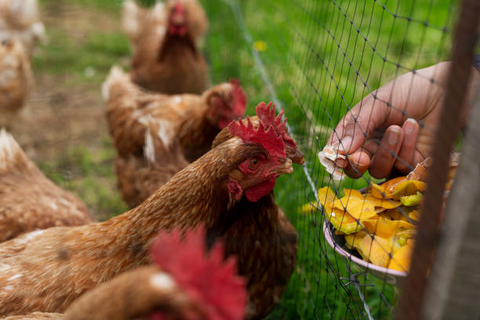
Like any living being, chickens require a balanced combination of macronutrients and micronutrients to thrive. The essential nutrients that should be incorporated into their diet include protein, fats, carbohydrates, vitamins, minerals, grit, and water.
1. Protein
Protein is vital for muscle development, tissue repair, and egg production. The protein requirement varies depending on the purpose of the chicken. For egg layers, a diet containing approximately 16-18% protein is necessary, while broilers, raised for meat, require a higher protein content of around 20-22%. Protein sources like oilseed meals, peas, certain grains, and insects (such as grubs and soldier flies) are excellent additions to their feed.
2. Fats
Fats provide energy to chickens and aid in feather production and maintenance. Including fats in their diet is essential for overall health and well-being.
3. Carbohydrates
Carbohydrates are another valuable source of energy for chickens. Grains such as barley, wheat, sorghum, and corn are excellent sources of carbohydrates that can be incorporated into their feed.
4. Vitamins and Minerals
Chickens require a diverse range of vitamins and minerals to ensure optimal health and productivity. High-quality chicken feed should contain added nutrients and additives that fulfill their vitamin and mineral requirements. Amino acids are also crucial for their overall development.
5. Grit
Grit plays a crucial role in chicken digestion. It helps them grind down their food in their gizzard, aiding in the breakdown of complex materials. Grit can be supplied separately or can be found naturally in free-range areas where chickens can instinctively pick it up.
6. Water
Water is one of the most important elements for chickens' well-being. It is essential for hydration, digestion, temperature regulation, and overall bodily functions. Fresh and clean water should be available to chickens at all times.
It's important to note that different breeds and types of chickens may have specific nutritional requirements. For example, broiler chickens bred for rapid growth will have higher protein needs compared to egg layers. Ensuring that these nutritional needs are met is essential for maintaining healthy and productive chickens.
Different Types of Chicken Feeds
To meet the specific nutritional needs of chickens at different stages of their lives, there are various types of chicken feed available. Here are the different types of chicken feed commonly used:
1. Chick Starter
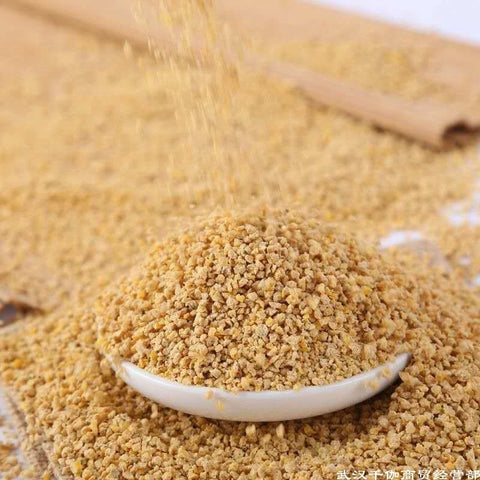
This high-protein feed is designed for newly hatched chicks. It provides them with the necessary nutrients to support their growth and development.
2. Grower Feed
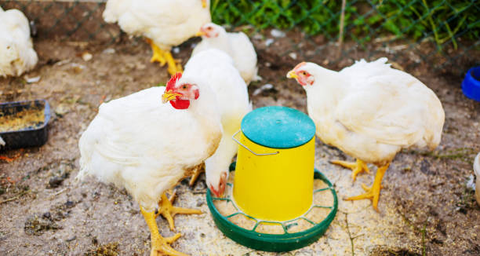
Grower feed is a lower-protein diet formulated for adolescent chickens. It provides them with the necessary nutrients to transition from the chick stage to reaching maturity.
3. Layer Feed
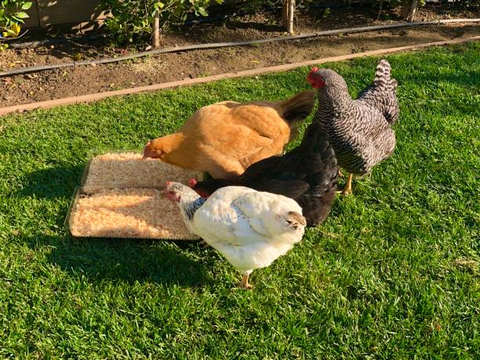
Layer feed is formulated specifically for egg-laying hens. It contains extra calcium to support the production of strong and healthy eggshells.
4. Flock Raiser
Flock raiser feed is a generalized feed suitable for non-specialized flocks that include chickens of different ages and purposes. It provides a balanced diet suitable for a mixed flock.
5. Broiler Feed
Broiler feed is designed for chickens raised for meat. It contains a higher protein content to support rapid growth and weight gain.
6. Game Bird Feed
Game bird feed is specifically formulated for show birds and gamefowl. It provides the necessary nutrients to support their performance and overall health.
7. Shell Grit
Shell grit is a calcium supplement that is typically added to the diet of laying hens. It aids in the formation of strong and healthy eggshells.
8. Chicken Scratch
Chicken scratch is a treat feed that can be offered to chickens as a supplement. It typically consists of a mixture of whole grains and seeds.
9. Fermented Feed
Fermented feed is a nutrient-rich option made by fermenting chicken feed. Fermentation helps enhance the digestibility and nutritional value of the feed.
10. Mash
Mash refers to finely ground feed, often used for chicks. It is easily consumed and digested by young chickens.
These different types of chicken feed cater to the specific nutritional needs of chickens at different stages of their lives, ensuring they receive the appropriate nutrients throughout their development.
Supplementing Chickens' Diet with Kitchen Scraps and Leftovers

While a well-balanced chicken feed forms the basis of their diet, chickens can also consume certain kitchen scraps and leftovers as supplementary treats. It's important to remember that these scraps should not replace their primary diet but rather be offered in moderation. Here are some safe kitchen scraps that can be fed to chickens:
Bread
Cooked meats (without bones or excessive seasoning)
Fruits (such as apples and berries)
Grains
Greens (including lettuce and spinach)
Squash
Starches (like corn and peas)
Vegetables (such as broccoli and cabbage)
However, there are certain foods that chickens should avoid, as they can be harmful or toxic to them. These include alcohol, avocado skins and pits, caffeine, chocolate, nightshade leaves, processed foods, salt, spoiled foods, raw meat, and raw potato peels (especially green or sun-exposed peels). It's also important to note that European Union regulations prohibit feeding catering waste to chickens, including kitchen scraps.
Safe Fresh Greens and Plant Materials for Chickens
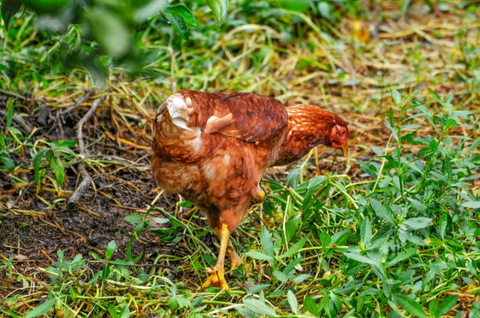
Fresh greens and plant materials provide additional nutrients to chickens and can be a valuable addition to their diet. Here are some safe options that chickens can consume:
Leafy Greens
Chickens enjoy tender greens such as kale, spinach, chard, lettuce, and amaranth. These greens are packed with vitamins and minerals that contribute to their overall health.
Herbs
Herbs like basil, oregano, mint, parsley, thyme, sage, and lavender are not only safe for chickens but also provide additional health benefits.
Vegetables
Carrot greens, radish tops, and beet greens are nutritious plant materials that can be included in their diet.
Beans and Peas
Chickens can safely consume the entire plant of green beans and peas, including leaves, stems, and roots. However, uncooked dry beans should be avoided.
Fruits
Chickens can enjoy fruits such as berries, melons, and pumpkin. They can consume the flesh, seeds, and parts of the skin.
Edible Flowers
Nasturtiums, calendula, and dandelions are not only safe for chickens but also provide additional health benefits.
It's important to be aware of plants that are toxic to chickens and should be strictly avoided. These include plants like azaleas, tomato leaves and stems, potatoes, and rhubarb.
Other Foods to Supplement Chickens' Diet

In addition to kitchen scraps, fresh greens, and plant materials, chickens can benefit from a variety of other foods to supplement their diet. Some options include:
Table Scraps
Vegetable peels, fruit scraps, and cooked grains are safe for chickens to consume. However, avoid feeding them anything moldy, rotten, or toxic to chickens (e.g., onion skins, avocado pits and skins).
Insects
Chickens are natural foragers and enjoy eating insects such as mealworms, crickets, and black soldier fly larvae. These protein-rich treats can be purchased or even grown at home.
Grains
Wheat, corn, oats, and barley are grains that can provide additional nutrients and energy to chickens. These can be offered in a whole or cracked form.
Dairy and Protein
In moderation, chickens can consume plain Greek yogurt, cottage cheese, and small amounts of cheese, which provide additional protein. Eggs (hard-boiled and mashed) can also be fed to chickens.
It's important to remember that these supplementary foods should not replace the main chicken feed, and a balanced diet should always be the primary source of their nutrients. Additionally, overfeeding treats can lead to nutritional imbalances and excess weight gain in chickens.
In conclusion, providing chickens with a well-balanced and nutritious diet is essential for their overall health, productivity, and well-being. A high-quality chicken feed that meets their specific nutritional needs should always be the foundation of their diet. Along with the appropriate types of chicken feed, incorporating safe kitchen scraps, fresh greens, and plant materials can be a great way to supplement their diet and provide additional nutrients. By understanding and meeting their nutritional needs, you can ensure that your chickens remain healthy, happy, and productive.
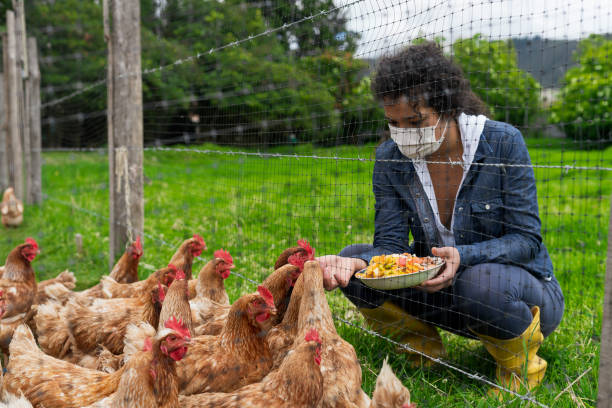
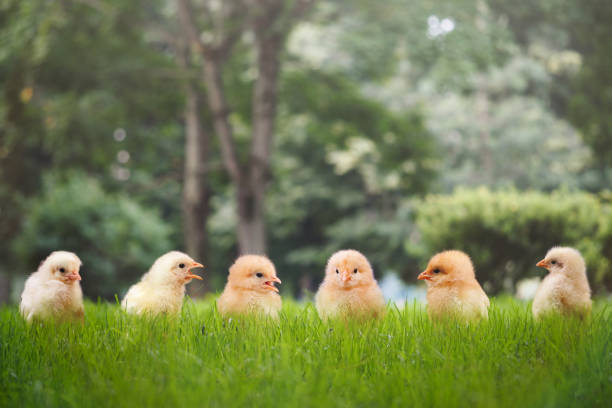
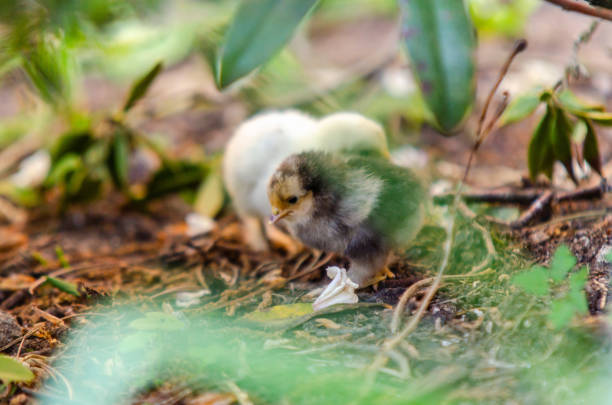
Leave a comment
All comments are moderated before being published.
This site is protected by hCaptcha and the hCaptcha Privacy Policy and Terms of Service apply.